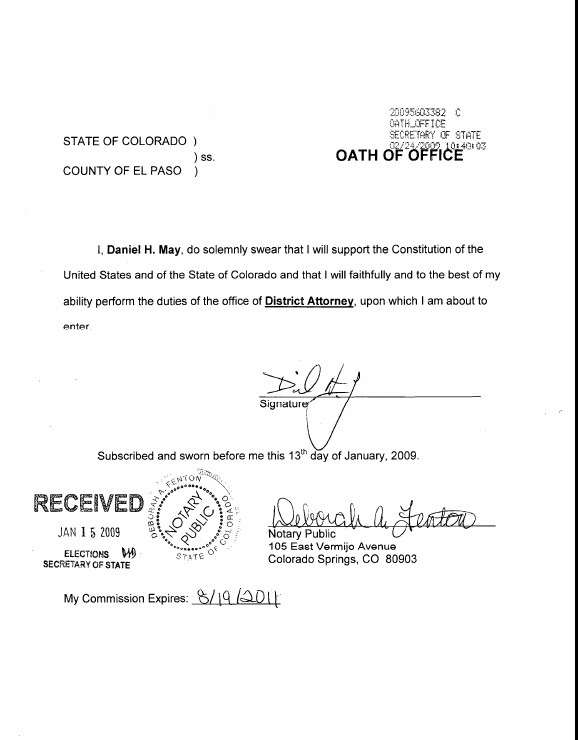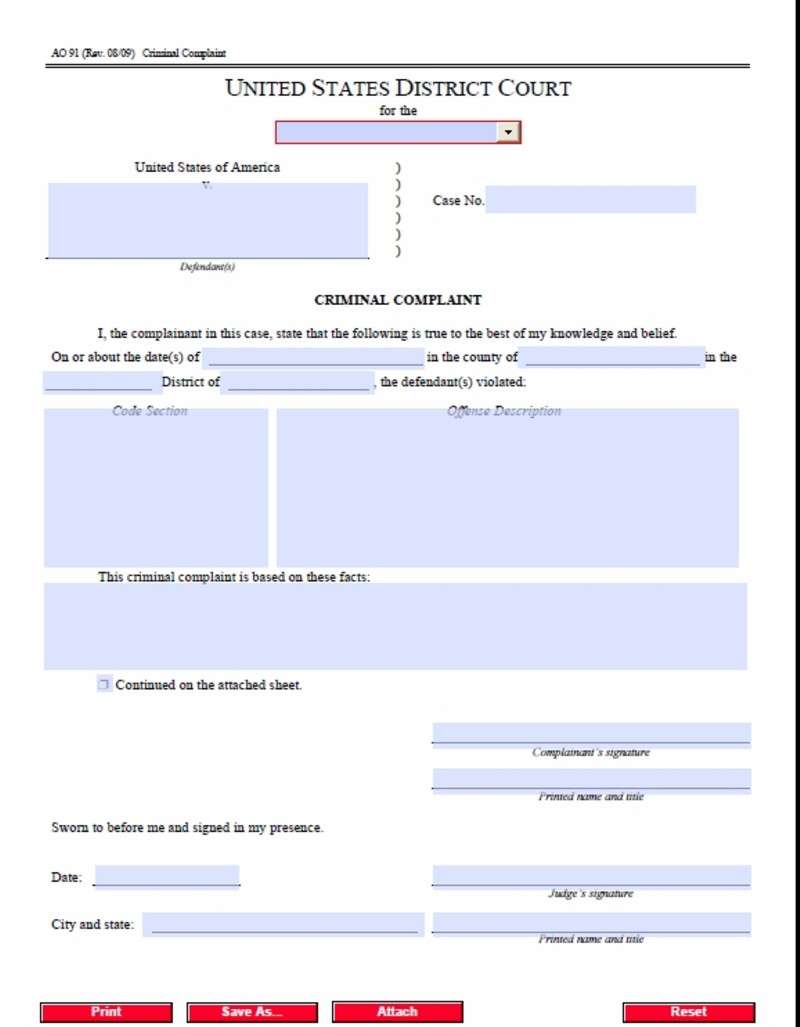I apologize for not responding before now...
I'll respond to the questions posed in your first post, David, then address your second post, which I found intriguing. Hopefully, we can make this thread helpful to others who find themselves in a similar situation. A kind of "step one: do this; step two, do that" etcetera.
I have not set up an evidence repository with the USDC...
2nd question: No. I don't have a driver license. He took the information from an invalid computer record of my canceled (in my eyes; suspended in theirs) auto registration (haven't figured out how to get rid of the Certificate of Title to the car). I signed "without prejudice" above my First Middle name. The judge acknowledged that in court when I mentioned it.
Technically you have won your case. At trial you ask the arresting officer how you identified yourself? Suppose you told the officer you are First Middle and he did not believe you? However it would be good if you gave him some kind of ID card with First Middle on it - even a driver license signed "First Middle" is good. Before I had a WSA ID card I carried a Certificate of Search from the USDC on David Merrill.
By bringing out the testimony that he never heard you when you identified yourself however, you expose an error in jurisdiction.
3rd question regarding a true and correct copy of the document in your USDC evidence repository: This is irrelevant (not applicable since there is no USDC repository). I did tender a photocopy of my original photocopy of the refused for cause presentment, the original Defendant's copy of which went back to the issuing officer. I also tendered my Certificate of Mailing.
There is a recognized legal principle that, if "all" judges have conflicts of interest, then "any" judge can hear the case. (The issue comes up from time to time in cases involving the compensation of judges or other matters affecting all judges.) -
United States v. Will, 449 U.S. 200 (1980).
Without an evidence respository the court not of record is holding the highest record.
Re: Your 2nd post.
This is the area where I need specific details about how to go about accomplishing the general instructions provided in your reply. I've never done any of this before, so its all new to me! I'm learning on the fly...
While this is all second nature to you, how do I get hold of the judge's and prosecuting attorney's oaths of office? Where do I need to go to obtain certified copies, and will it cost very much? Is it really necessary to obtain (in this instance) the DA's oath? Is a DA likely to be brought into a municipal city matter like this?
The DA is responsible for the legal training of police officers. This oath of office is bogus and exposes a vacant DA office. See below how there is no oath before God as prescribed by tradition and by statute? In Colorado county and municipal oaths are found at the county clerk and recorder while all district and state oaths are found at the secretary of state. Here is a valid oath; see how it looks like a bond. Look at Dan MAY's $5K insurance policy again. Pathetic! All that is to me is a confession that he knows his oath of office is bogus!
The acquirement of oaths must be convenient and cheap, wherever you are in America.
"Know the bill of rights and put them on notice
in open court that they cannot proceed as a court not of record." Okay...
I am really talking about reading the bills of rights in your state and the federal constitutions. All actors who have sworn to uphold the constitutions (presuming all the oaths are valid) must adhere to these rights. In your situation you are probably sunk on most of the other issues; like how to abate for misnomer etc. that may fly, maybe not but you have to wait until you are in the fire to see if the extinguisher is full if you know what I mean. You will probably win by insisting on a court of record and since it is a court not of record you have to demonstrate competence by forming the record yourself. With that (and all the oaths of office) in the Record then you will be able to do things like (if you were in Colorado) make the judge form a panel of 12 jurors for traffic court. The judge would be so reluctant to do that he would likely beg the prosecutor to lose the witness and throw the trial.
If yes, then this presents another obstacle for me. I've never seen a request for Special Appearance. Where could I find a sample similar to what I need to have done? And do I need to specify in the request what the special appearance is in regard to? (Sorry for all the questions; I just don't want to make any mistakes. I just need directions to know where and what to look for.)
I am speaking about a Restricted Appearance Rule E(8) in the US District Court and simply to form the Record with a competent clerk of court.
"As soon as he has violated your rights tell him the deal is off. If he insists on proceeding then let him know what you charge for such a performance if he forces you to be an actor." Okay. Again, how would I phrase this? I presume this would be done in open court, too.
I'm much better with producing paperwork for the record than in having to joust with a judge or prosecutor in court. Is there any way that I can get things on the record through the use of affidavits and other such notices?
Some additional information you need to know:
I previously filed with the state Dept. of Transportation and the County Sheriff and subsequently with the county recorder back in 2008 a sworn Affidavit of Administrative Notice regarding the travel issue. I used this affidavit in a previous traffic stop by a highway patrolman who basically ignored it, but which matter was settled in a justice court with a R4C presentment that I was able to enter into the court case file prior to any court appearance. It was therefore within the court's cognizance.
Might this affidavit be used in this instance as a prior "notice to principal is notice to agent" type thing where the gov't agencies were legally put on notice about this matter? A copy of the affidavit is attached. (Sorry for the wordpad text file; system wouldn't allow rich text format.) I ask this because of the following, which I found in my research:
Possibly. What I see is that you are getting your mind wrapped around record forming. Get it into the Record of the muni court. It should show that it is in the record of the Administrative Agency you mentioned though - marked by them and returned or have a certificate of mailing etc.
I'm not sure how a municipal court judge of no record would handle this submission. It is obviously coming from a jurisdiction (common law) foreign to his own. But when it said: It is pre-judicial and "No judge, court, government or any agencies thereof. . . can abrogate anyone's affidavit of truth," that pretty much told me that this was powerful stuff. It seems to override any government's jurisdiction. Whether or not they recognize it, though, is another story.
Maybe obtaining the oaths of office, swearing out an affidavit of accepting the oaths of office of both the judge and prosecuting attorney, and submitting that along with the Affidavit of Administrative Notice to the court somehow (not sure whether I can just submit it into the case file or whether I need to request a Special Appearance hearing to do it). Any ideas about this?
Yes! That sort of thing. If you have been keeping Return Receipts and such then you are keeping a record! The USDC evidence repository is a competent clerk for you to use in the cognizance of the US government.
Just occurred to me: In the Court Survival Guide it mentioned a strategy to put in a Motion To Withdraw Plea "to remove your implied consent to the court's jurisdiction. By vacating your plea of Not Guilty, technically the venue and Jurisdiction is removed. So here is where you can again use the Notice of Special Visitation and of Foreign Law, and the Judicial Notice of Military Flag and Challenge of Jurisdiction. Make sure the court agrees to vacate your previous Plea,
before you say anything more. Before you are required to enter a new Plea, present these 2 notices and demand the resolution of jurisdiction.
Indeed you will screech the proceedings to a halt every time you mention, I have not been arraigned. However that continues from Square One and will land you an appointment with a court-appointed psychologist for a competency hearing. That could be deadly or destroy your mind over a traffic matter?
"Now the court will now be up against the wall, because it must stop everything and make a legal determination as to whether the court even has jurisdiction.
Because it no longer has your plea, it no longer has your consent to their implied and assumed jurisdiction."
I'd rather do something that doesn't require me to speak much, but just enter paperwork on the record to challenge jurisdiction. Don't want to get crossed up like the first time, when I wasn't prepared for the judge's reply. The devil is in the details in this! But if I know ahead of time how he is likely to respond, then I can have a statement ready to rebut (or whatever) his reply. As long as I know what to say (no matter what he may say, if he's being belligerent) I'll be okay.







 Reply With Quote
Reply With Quote






